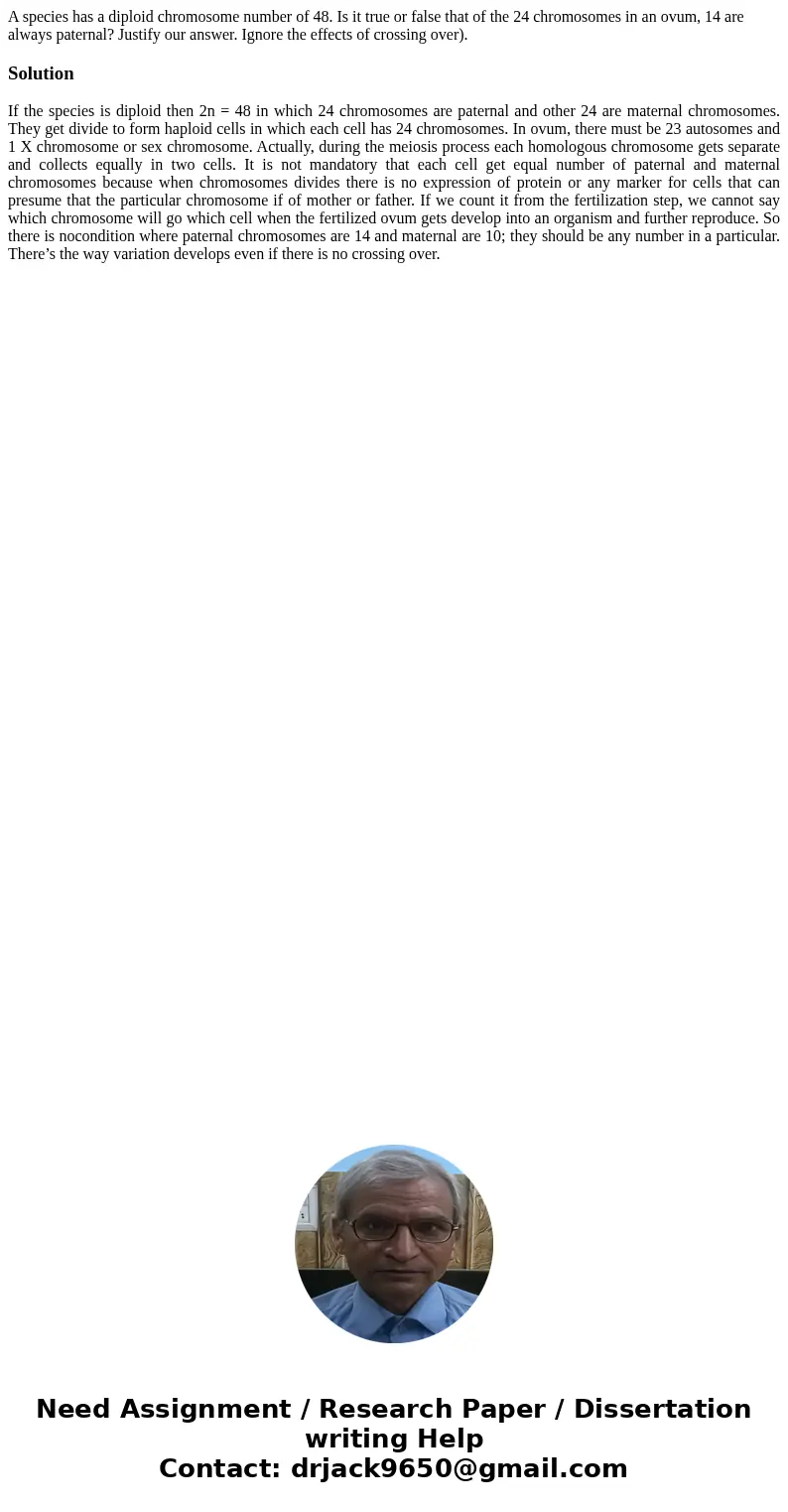A species has a diploid chromosome number of 48 Is it true o
Solution
If the species is diploid then 2n = 48 in which 24 chromosomes are paternal and other 24 are maternal chromosomes. They get divide to form haploid cells in which each cell has 24 chromosomes. In ovum, there must be 23 autosomes and 1 X chromosome or sex chromosome. Actually, during the meiosis process each homologous chromosome gets separate and collects equally in two cells. It is not mandatory that each cell get equal number of paternal and maternal chromosomes because when chromosomes divides there is no expression of protein or any marker for cells that can presume that the particular chromosome if of mother or father. If we count it from the fertilization step, we cannot say which chromosome will go which cell when the fertilized ovum gets develop into an organism and further reproduce. So there is nocondition where paternal chromosomes are 14 and maternal are 10; they should be any number in a particular. There’s the way variation develops even if there is no crossing over.

 Homework Sourse
Homework Sourse